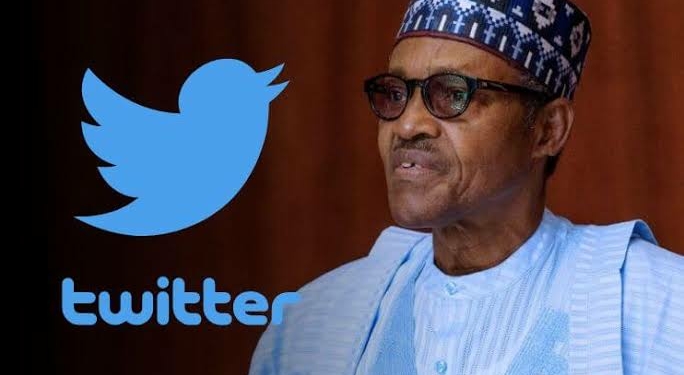The ECOWAS Court sitting in Abuja has rejected the Nigerian government’s application for the dismissal of a suit challenging last year’s ban of Twitter in the country.
This is despite the lifting of the ban on Twitter in January, seven months after the indefinite suspension of the platform was announced by the Nigerian government in June 2021.
According to a statement by the court’s information unit on Friday, a three-member panel of the court which sat on the case, fixed May 10 for its final judgement after turning down the federal government’s application for the dismissal of the suit.
The presiding judge, Gberi-Be Ouattara, who delivered the ruling dismissing the government’s application, described it as baseless. Two other members of the panel – Keikura Bangura and Januaria Moreira Costa – concurred.
The court noted that the lawyers representing the Nigerian government only filed the application for the dismissal of the suit after the suit had been adjourned for judgment.
It added that the Nigerian government did not provide evidence of the agreement it reached with Twitter management as evidence of resolution of the issue.
The ruling followed a hearing on the application on February 16.
Several individuals and organisations, including the Socio-Economic Rights and Accountability Project (SERAP), had filed different suits against the Nigerian government in the wake of the announcement of an indefinite suspension of Twitter operations in the country on June 4, 2021.
The ban on Twitter operations came two days after the microblogging site deleted a controversial tweet by President Muhammadu Buhari. But the Nigerian had insisted that it took the action against Twitter, amongst other reasons, in response to the abuse of the platform which it claimed was a channel for spreading fake news against Nigeria’s corporate existence.
SERAP, the Media Rights Agenda and eight others; Malcolm Omirhobo; and Patrick Eholor, subsequently filed the suits marked: ECW/CCJ/APP/23/21,ECW/CCJ/APP/29/21,ECW/CCJ/APP/24/21, and ECW/CCJ/APP/26/21, respectively, against the Twitter ban which they alleged infringed on their rights.
The ECOWAS Court subsequently ordered the consolidation of the suits into one.
Ruling on an application by the plaintiffs on June 22, 2021, the court issued an interlocutory order restraining the federal government from taking any action against media houses, organisations or individuals making use of Twitter in defiance to the ban pending the hearing of the suit.
The ban, however, continued while the government continued to announce ongoing negotiations with Twitter.
After seven months, the government unblocked access to the site in January 2022.
‘Why suit should be dismissed’
The government subsequently filed an application dated January 26, 2022 asking for the ECOWAS Court to dismiss the suit challenging the Twitter ban.
On February 16, the government’s legal team argued the application for the dismissal of the suit, citing the lifting of the ban on Twitter.
Abdullahi Abubakar and Abubakar Nuhu, both assistant state counsels, representing the Nigerian government, said that with the lifting of the suspension of Twitter, the suit had lost its purpose and amounted to an academic exercise.
They justified the earlier ban on Twitter, saying the platform was consistently being used for activities capable of undermining the existence of Nigeria and national security.
They added that Twitter had entered an agreement promising to be law abiding which resulted in the lifting of the ban on Twitter.
They also contended that a decision of the court on the suit would constitute no value for the applicants since the subject matter was now devoid of purpose.
‘Plaintiffs oppose call for dismissal’
The plaintiffs opposed the submissions of the Nigerian government, saying the suspension of Twitter was not the subject matter of the suit, but the action of the government which violated their rights.
They also told the court that the lifting of the suspension on Twitter was only one among other prayers sought from the court.
They called on the court to reject the government’s request for dismissal of the suit and go ahead to deliver its judgement.
The applicants had in their suits challenged the decision of the Nigerian government to suspend access to the Twitter platform in Nigeria, alleging that the action constituted the violation of their fundamental rights including their rights to freedom of expression and press freedom.
They also asked the court to declare the suspension a continuous violation of their fundamental rights.
At the earlier hearing on September 29, 2021, two groups intervening as amici curiae (friends of the court) “offered insights on state interference with the right to freedom of expression, peaceful assembly, access to information, political participation and socio-economic rights in the internet age,” the court’s information unit stated of the previous proceedings in the case.
Deji Ajare, Nanpon Wuyep and Mrs Miriam Orika representing the two amici curiae comprising three groups – Access Now, gElectronic Frontier Foundation (EFF) and Open Net Association on one hand, and Amnesty International on the other, made joint oral submissions intended to provide useful findings that could assist the Court in deciding on the matter.
Another group – the Robert F. Kennedy Center for Justice and Human Rights represented by Mr Ikechukwu Uzoma also made submission following its application to intervene in the matter as amicus curiae.








Discussion about this post